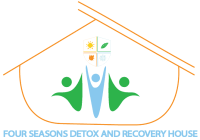Ask yourself how much the substance affects your daily life and relationships. This may give you an answer to “How Do I Know If I Have an Addiction”? Addiction refers to a psychological or physical dependency on any substance or activity. Addiction is also, sadly, one of the most stigmatized disorders in the world and one that we’re only now becoming more empathetic toward. Beyond that, substance addiction is treatable with professional help. Overcoming withdrawal is the first step to gaining control of your life.
Addiction is sneaky by nature, creeping up on the individual until they feel consumed by that which they’re addicted to. Denial is common; people want to believe they control addiction, not the other way around. At the same time, research is beginning to show that some people are more genetically prone to addiction than others and even can benefit from specialized care that goes above and beyond simply getting them to stop taking the substance they rely on.
How do I know If I have an addiction? So, if you’ve been questioning whether or not you or a loved one have one, there are some key signs of addiction to look out for.
How Does Addiction Affect the Brain?
Addictive substances feed our brain’s “reward center,” which releases dopamine, a pleasure-enhancing neurotransmitter. This is to flood our systems with euphoria, pain relief, and general happiness. Over time, we become dependent on this process, as our brain becomes conditioned to believe that it can’t experience pleasure without the substance. So, addiction feels out of control when the brain prioritizes the substance over everything else.
What are the 6 Warning Signs of Addiction?
There can be a fine line between enjoying a substance and being dependent on it, either physically, psychologically, or both. For example, you may unwind with a couple of glasses of wine every night after work. But, little by little, the amount you drink each evening can start to go up, and you may find yourself getting to a point where you can’t fall asleep without it. At the same time, you may find that going one night without drinking becomes nearly impossible.
Thankfully, at this stage, addiction is a fairly well-understood disease. And there are 6 warning signs that can give you insight into whether or not a true addiction is at work, motivating the urge to consume the substance in question.
Extreme Difficulty When Stopping or Cutting Down
One of the clearest giveaways of addiction is not being able to stop or cut down on the intake of the substance. This can indicate both a psychological and physical dependency. If you begin to experience withdrawal symptoms, like anxiety, irritability, sweating, pain, changes in appetite, or any other mental or physical discomfort, then it’s extremely likely that you’re addicted to the substance. Maybe you make excuses as to why you aren’t stopping or cutting down just yet when deep down, you know that you’re just trying to avoid going into withdrawal and all the symptoms that come with that.
Deprioritizing Important Areas of Your Life
At a certain point, addiction becomes the number one priority in your life. Suddenly, your day-to-day revolves around getting the drug or alcohol into your body, and everything else takes a backseat. This can mean that your job, relationships, and other obligations start to suffer as your brain has become convinced that addiction is the most important thing in the world.
If you’re finding that the things that used to be the most important in your life no longer take priority and that for most of the day, you’re either engaging in or thinking about the substance, that’s a good sign that addiction is at work.
Negative Consequences Related to the Substance
As we said, there comes the point in addiction where you’re no longer in control of the addiction, but the addiction is in control of you. At this stage, you may start to find that negative consequences are happening in your life because of your addiction, and you can’t avoid them. Addiction can make it the most important thing in your life, causing you to lose jobs or relationships. It can also mean losing all of your money because you can’t stop buying the substance. Any serious life consequence that results from the substance you’re abusing indicates a strong potential for addiction.
Physiological Changes
Pretty much any addictive substance can become very bad for our health after long-term, excessive use. If your body is changing because of the substance you’re taking, it’s likely that you’re addicted at that stage. This can manifest as visible changes like weight or skin or internal changes such as appetite, sleep, or mood/personality stability.
Risky or Dangerous Behavior
Engaging in risky or dangerous behaviors that are “not like you” is a sign of addiction. It can indicate chemical changes in the brain caused by the substance, which impacts decision-making. It may also show that you are willing to take risks to keep using the substance, even if it means putting yourself in danger.
Denying Your Addiction and Being Dishonest
Just about everyone who is addicted to a substance will go through a stage of denial and possible dishonesty with others. It involves minimizing the addiction, making fake commitments to quit, and falsifying substance usage frequency. We often deceive ourselves and others, stating we can quit anytime.
Why is It Important to Identify Addiction? Understanding the Risks
Naturally, it’s critical to identify an addiction, as identifying it is the first step to recovery. If you’re in denial that you actually have a problem with addiction, you’ll never make a move to get better.
We all know that addictions don’t go away on their own or get better over time. With most substances, we build a tolerance, needing more and more of the substance to get the desired effects. It takes a toll on the body and personal life, ultimately leaving us without help.
Addiction can be isolating and destructive, and it may take time to recognize and acknowledge its presence. However, there’s hope. How Do I Know If I Have an Addiction? There are a number of drug addiction rehab centers around the world equipped with knowledgeable and certified staff. They treat all forms of addiction and substance abuse. If you suspect addiction, locate a nearby rehab center to recover.



